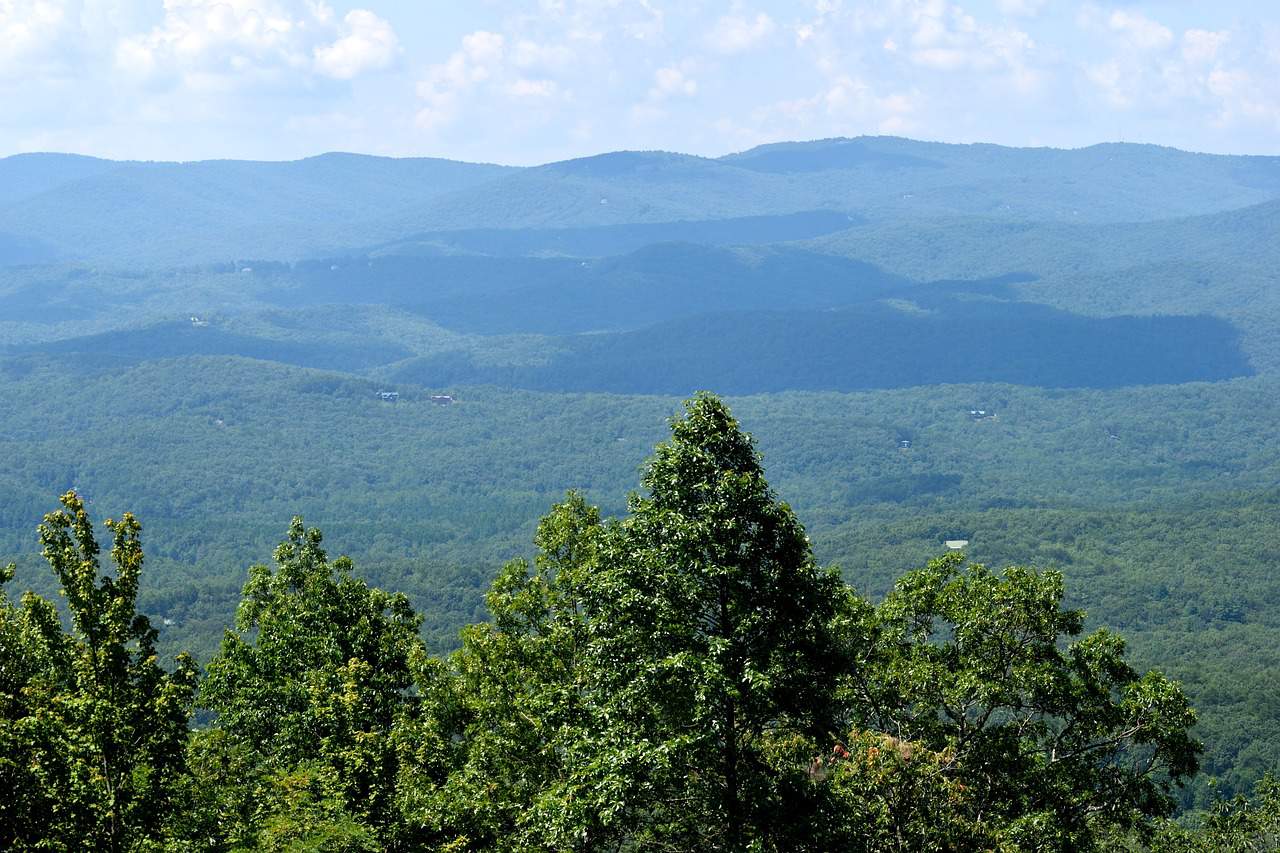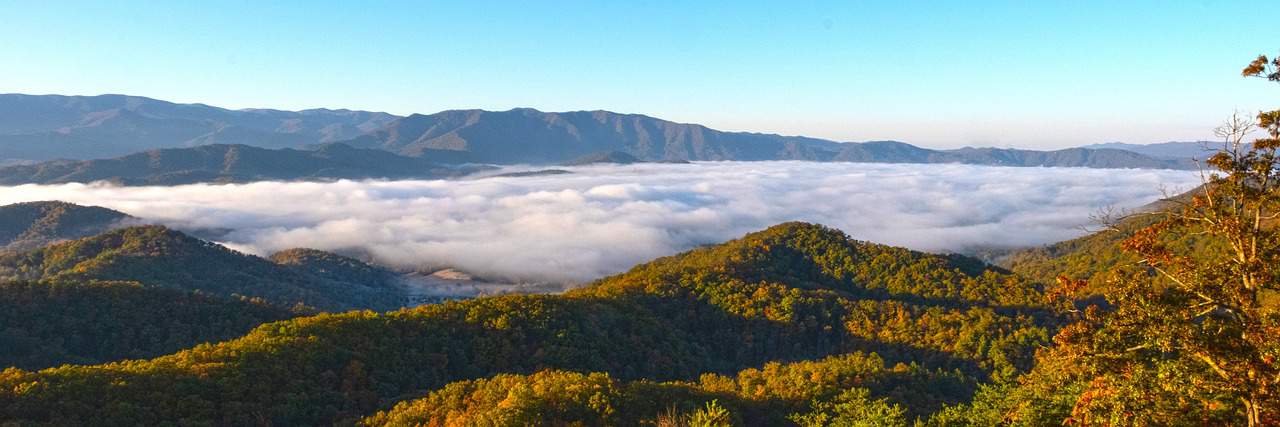Funny Facts on the Appalachian Mountains
If the western US has the Rockies, the eastern US boasts of the great Appalachian Mountains. These mountain ranges stand out among the US states' oldest natural landmarks. Take a hike through the unique highlights of these wonders of nature through these Appalachian Mountains facts.
- The Appalachians is a mountain range in eastern North America.
- The Appalachian Mountains first appeared on a map in 1562.
- There are at least 31 mountains in the Appalachians.
- The Appalachian mountain range has a length of 2,575 kilometers.
- The mountain first formed more than 450 million years ago during the Ordovician Period.
- In the North American region, the Appalachians is the oldest mountain range.
- The Appalachians' name comes from a Native American tribe dwelling in the region called "Apalachees."
- Before it experienced natural erosion, the Appalachians where once the same heights with the Rockies and the Alps.
- The tallest mountain in the Appalachian range is Mount Mitchell at 6,684 ft.
- Mount Mitchell is located in Yancey County, North Carolina, United States.
- The Appalachian Mountains contain rich deposits of iron, natural gas, and petroleum.
- The Great Appalachian Valley lies towards the west and south of the Hudson river valley.
- The Appalachian range is like a barrier to east-west travel since it has alternating ridgelines in opposition to most highways and railroads.
- The mountain range also covers certain parts of the islands of Saint Pierre and Miquelon, which comprise an overseas territory of France.
- The average height of the Appalachian range is around 3,000 ft.
- The term 'Appalachian Mountains' was only popularized in the late 19th century.
- The most popular term for the mountain range before the 19th century was "Allegheny Mountains."
- Washington Irving, an American historian, proposed renaming it to 'Appalachia' or 'Alleghania.'
- There are two common ways to pronounce Appalachian. "A-Puh-LAY-Chuhn" and "A-Puh-LATCH-Uhn".
- The range is divided into three great sections. Those are the Northern, Central, and Southern.
01 Appalachian Mountains Facts Infographics
02 The summit of Mount Mitchell experiences both summer and winter.
03 The Appalachian Trail is the longest hiking-only trail in the world.
04 The length of the Appalachian Trail is about 16 times the height of Mount Everest.
05 The Appalachian Mountains are partly located in Canada.
06 The Appalachian Mountains mostly lies in the U.S.
07 Many hikers already "conquered" the Appalachian Trail.
08 The Ouachita Mountains in Arkansas and Oklahoma were once part of the range.
09 The Appalachian Mountains have thirteen regions.
10 The southern part of the Appalachian mountain range runs from the New River.
11 The Appalachian mountains' central section starts from the Hudson Valley.
12 The Appalachian mountains' northern section starts in the Canadian province.
13 Another known peak of the Appalachians is Mount Washington.
14 The Adirondack Mountains are not part of the Appalachians.
15 The Appalachian region functions as a geographical divide.
16 The Great Smoky Mountains are a subrange of the Appalachian Mountains.
17 Over 12 million people visit the Great Smoky Mountains National Park every year.
18 The Appalachian Mountains are rich in anthracite coal and bituminous coal.
19 The discovery of petroleum in the Appalachians started in 1859.
20 The Appalachian forests have several species of squirrels.
21 The Appalachian Mountains features diverse wildlife.
Appalachian Mountains Facts Infographics

The summit of Mount Mitchell experiences both summer and winter.
The summit of Mount Mitchel has mild summers with moderately cold winters. Overall, the weather here is more similar southeastern Canada compared to the southeastern United States.
The Appalachian Trail is the longest hiking-only trail in the world.
Tourists who want to experience the Eastern mountain range themselves can opt for the Appalachian National Scenic Trail is. Measuring approximately 3,500 kilometers long, the Appalachian Mountain trail is longest hiking-only trail in the world.

The length of the Appalachian Trail is about 16 times the height of Mount Everest.
Simply put, hiking the entirety of the Appalachian Trail is like climbing Mount Everest 16 times in terms of distance. The peak of Mount Everest measures around 29,029 feet, while the Appalachian Trail stretches to an estimated 464,464 feet.
The Appalachian Mountains are partly located in Canada.
In Canada, the Appalachian Mountains occupies its Maritime provinces. The mountain range runs along the Canadian regions of Nova Scotia, Newfoundland, New Brunswick, and the south-eastern part of Quebec.
The Appalachian Mountains mostly lies in the U.S.
A majority of the Appalachian Mountains runs along Kentucky, Virginia, Tennessee, West Virginia, Maryland, North Carolina. It also lies within certain parts of Alabama, Georgia, South Carolina, Pennsylvania, Ohio, and New York.

Many hikers already "conquered" the Appalachian Trail.
Although it's the longest trail in the world, over 10,000 people have successfully hiked the Appalachian Trail from end to end.
The Ouachita Mountains in Arkansas and Oklahoma were once part of the range.
Initially, the Ouachita Mountains in Arkansas and Oklahoma were considered a part of the Appalachians. However, geologic activity eventually separated these mountains from the Appalachian.
The Appalachian Mountains have thirteen regions.
The mountain ranges' physiographic division is composed of thirteen regions grouped into three main sections: the northern, central, and southern ranges.
The northern section is best known for the White Mountains of New Hampshire and the Green Mountains of Vermont. For the central region, its standout ranges are The Berkshires of Massachusetts, the Catskill Mountains of New York, and Pennsylvania's Poconos. Meanwhile, the southern ranges feature the Cumberland Plateau and the Great Smoky Mountains.
The southern part of the Appalachian mountain range runs from the New River.
This river flows through North Carolina, Virginia, and West Virginia. Furthermore, the southern part of the Appalachian Mountains consists of the expanse of the Blue Ridge. It splits into the Western Blue Ridge, Eastern Blue Ridge Front, Cumberland Plateau, and Ridge-and-Valley Appalachians.
The Appalachian mountains' central section starts from the Hudson Valley.
This river runs through Virginia and West Virginia. Moreover, this section of the Appalachian mountain range includes the Valley Ridges between the Allegheny Front and the Great Appalachian Valley. It also includes the Taconic Mountains in New York, the New York-New Jersey Highlands, and the majority part of the Blue Ridge.
The Appalachian mountains' northern section starts in the Canadian province.
The northern section of the Appalachians runs from the Canadian province of Newfoundland and Labrador. From here, it meets the central section through the Hudson River. Furthermore, it includes the Long Range Mountains and other landmarks.
Another known peak of the Appalachians is Mount Washington.
Mount Washington in New Hampshire is another impressive peak of the Appalachians. Standing 6,288 feet (1,916 meters) above sea level, this mountain has extreme weather conditions. It consistently experiences tropical cyclones-force winds at the summit at an average of 100 days per year.
The Adirondack Mountains are not part of the Appalachians.
Many consider the Adirondack Mountains in New York as part of the Appalachian Mountains. However, geologically speaking, it stands as an independent land formation. That said, the Adirondack Mountains are the only ones in the eastern United States that are not geologically Appalachian.
The Appalachian region functions as a geographical divide.
Generally, the Appalachian region is viewed as a geographical divide between the eastern seaboard and the Midwest. Moreover, the Eastern Continental Divide follows the Appalachian Mountains from Georgia to Pennsylvania. Definitely one of the Appalachian Mountains facts that'll help you understand the US geography.
The Great Smoky Mountains are a subrange of the Appalachian Mountains.
Located along Tennessee to North Carolina, the Great Smoky Mountains are a subrange of the Appalachian Mountains. It roughly occupies 76,000 hectares of old-growth forest. The word "Smoky" comes from the natural fog surrounding it that is often seen from a distance.

Over 12 million people visit the Great Smoky Mountains National Park every year.
With over 12 million visitors each year, the Great Smoky Mountains National Park is the most visited national park in all the US states. Established by the United States Congress in 1934, the park has since been designated an International Biosphere Reserve in 1976. Since 1983, the park has also been a UNESCO World Heritage Site. How's that for Appalachian Mountains facts?
The Appalachian Mountains are rich in anthracite coal and bituminous coal.
Aside from resources as such iron, natural gas, and petroleum, the Appalachian mountains are also rich in compounds such as anthracite coal. Also known as hard coal, the mountain ranges are also rich in bituminous or soft coal.
The discovery of petroleum in the Appalachians started in 1859.
In 1859, a huge amount of petroleum was recovered from the Western Pennsylvania region of the Appalachian Mountains. This eventually launched the petroleum industry in the US, which is now known as one of the world's biggest producers of crude oil.
The Appalachian forests have several species of squirrels.
The thick expanse of Appalachian forests houses five species of tree squirrels. Namely, the eastern gray squirrel, southern flying squirrel, northern flying squirrel, red squirrel, and fox squirrel.

The Appalachian Mountains features diverse wildlife.
Aside from its famous squirrels, the native wildlife in the Appalachian Mountains includes a wide variety of animals. The forest biosphere includes moose, black bears, foxes, bobcats, coyotes, porcupines. Smaller species such as bats, raccoons, white-tailed deer, beaver, chipmunks, rabbits, also complete the site's ecology.
Source: https://facts.net/appalachian-mountains-facts/
0 Response to "Funny Facts on the Appalachian Mountains"
Post a Comment